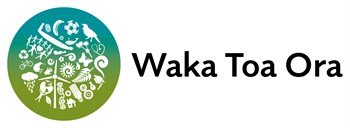We are stopping our weekly newsletter for a while so we can undertake some website maintenance.
We will be in touch in the near future about when newsletters will resume.
Waka Toa Ora apologises for any inconvenience caused.
Now is a good time to check if you are immune to measles
You are considered immune to measles if you have:
- had measles before; OR
- received 2 measles vaccines after the age of 12 months - such as the measles, mumps and rubella (MMR) vaccine.
If you were born or living in New Zealand before 1969, you are likely to be immune because nearly everyone caught measles before then. If you lived in another country before 1969, you will need to check with your healthcare provider.
It is important you check if you are immune to measles and to find medical records to confirm this - such as immunisation records or test results.
Get more information on checking your immunity against measles (Health NZ).
If you are immune and you are exposed to someone with measles, you won’t need to quarantine (stay at home) or take any other special precautions to protect other people, as you are already protected from getting and spreading measles.
The MMR vaccine is FREE for all people aged under 18 years and for people aged 18 years and over who are eligible for FREE New Zealand healthcare.
Find out more about the measles, mumps and rubella (MMR) vaccine [Health NZ].
Welcome to Waka Toa Ora
Waka Toa Ora is a Canterbury DHB-led inter-sectoral collaborative partnership in the Canterbury region. The partnership is based on the WHO Healthy Cities model, and was previously known as Healthy Christchurch.
The key theme of initiative is that all sectors and groups have a role to play in creating a healthy Canterbury, whatever their specific focus (recreation, employment, youth, environmental enhancement, transport, housing or another aspect of health or wellbeing).
This inter-sectoral initiative fosters collaboration between organisations who have signed the Waka Toa Ora Charter.
Read the Waka Toa Ora Charter - updated July 2019.
The new name Waka Toa Ora communicates that we are all in a waka together. We are rowing in the same direction and navigating the many dimensions of wellbeing (physical, social, spiritual, and mental and emotional — hau ora, wai ora, mauri ora, toi ora). We are stronger navigating the regional landscape together.
There are currently over 200 charter signatories to the Waka Toa Ora Charter, including government agencies, businesses, voluntary sector groups, networks and residents’ associations. The organisations involved reflect a diverse focus and cover many aspects of health and wellbeing.
